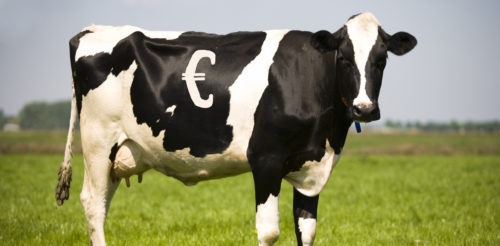It’s the budget, stupid
Only one thing is sure about 2020 EU budget cycle: it will seriously divide Member States

Hard Brexit, soft Brexit, damage control. The European discourse has been undoubtedly driven by these words in the first six months of 2017. But the second half of the year might bring a slight change by shifting the focus to the 2020-26 budget. Tough budget, soft budget, damage control.
Of course, the new debate can’t be detached from Brexit, since the UK’s departure will seriously alter the landscape of net contributors of the EU budget. This is perceived as a window of opportunity by many political actors who want to kick off the long-needed reforms of European integration. Even though, the bravest bookmakers wouldn’t accept bets now on which scenario might come true, one thing is clear: the 2020 budget will affect many interests.
Antonio Tajani, the President of the European Parliament has just made his contribution to the Europe-wide brainstorming this week. In a funny way, his leaked proposal managed to unite farmers and technocrats, who were all outraged by the plan. Fair enough, the Tajani cabinet identified four priority areas that pose a serious challenge for the future of EU citizens: security, immigration, climate change, and youth unemployment. But at the same time, he suggested to finance these policies by reallocating funds dedicated to the Common Agricultural Policy.

From an economic point of view, Tajani’s plan would be a reasonable move, given that the agricultural sector produces only 2% of the EU GDP while 40% of total EU budget is spent on subsidizing farmers. But on the other hand, the reform might have disastrous effects on already volatile economies like Italy or Spain, and certainly lead to a revolution among French farmers, as we have seen in the 1990s. With the risk of widening the already huge gap between the South and the North of Europe, the chances of political feasibility compared to zero.
The German Ministry of Economic Affairs has also came out recently with the idea that led to strong resistance in many Member States, mainly in Eastern Europe. The German position paper suggested that the European Commission examine if the accession to Structural Funds can be linked to ex ante conditions, like a sustainable macro-economic environment or the respect of rule of law. Even if the latter was a tiny sentence in an eight-page document, it was understood as a clear message for Hungary and Poland that have conflicts over the issue with the European Union for years. Despite the fact that Commission President Jean-Claude Juncker clearly ruled out the possibility of a system leading to a further divide Member States and German election campaign will be over by September, so the politicians don’t have to fuss the voters, the idea quite possibly will pop up later, fueling serious tensions between Eastern and Western countries of the EU.
The third budgetary question would also lead to further division between Member States. Contrary to the other proposals, the idea of a common EU budget dedicated to tackle asymmetric shocks in the Eurozone has been on the table for years. In fact, the common currency shouldn’t have been launched without this tool. But as we have always seen in the history of the European integration, political compromise won over economic rationality. The crisis starting in 2008 pointed the fragility of the system, but for the well-known games of political interests, very few steps were done. Now, the debate about the necessity of a shock-absorbing EU budget has been renewed with the election of Emmanuel Macron as French president. Nevertheless, Germany will have the last word, so real progress can’t be expected earlier than autumn. But once the elections are over, Eurozone reforms can’t be delayed anymore. Once Euro-countries decide to go further together, the eight countries outside the monetary zone will feel even more sidelined.
Budget negotiations might turn out to be a critical junction for the long-term future of the EU. The question is if Member States will follow the well-known practice of half-solutions and compromises, or opt for painful divides and economic rationality.
